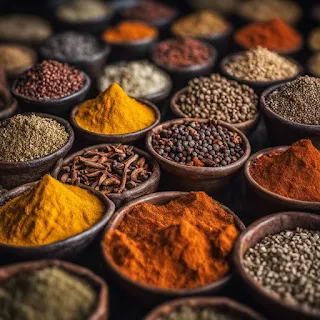Africa and the British East India Company
During the colonial period, the British East India Company exerted its influence on Africa through the Indian Ocean trade of spices, textiles, gold and silver.
This network functioned as a vital link, connecting different regions such as Africa's eastern coast, Africa’s Islands, India, and Southeast Asia. The company's ships regularly made stops along the African coast, contributing significantly to the exchange of goods, knowledge, and customs between Africa and other parts of the world.
Africa and the Effects of The British East India Company
The British East India Company engaged in trade with Africa for several decades, primarily during the 17th and 18th centuries. The exact years of their trading activities can vary, but it's generally accepted that their involvement spanned from the late 1600s to the early 1800s.
The company traded with many coastal areas along East Africa, including present-day countries like Kenya, Tanzania, and Mozambique. They established trading posts in places like Zanzibar, Mombasa, and Kilwa, where they exchanged goods and established relationships with local leaders.
Also, The British East India Company's trade extended to islands in the Indian Ocean, such as Madagascar and Mauritius. These islands served as important waystations for ships traveling along the trade routes.
Although the primary focus of the British East India Company's trade was on the eastern coast of Africa, there were interactions with South Africa as well. The company's ships often made stops at the Cape of Good Hope, which was a strategic point for resupplying on long voyages.
The British East India Company's Trading with Africa
A complex system of trade emerged, involving commodities like spices, textiles, and precious metals. These exchanges played a substantial role in shaping the economic landscape of Africa and the regions connected by the network.
Spices, like a fragrant treasure trove, held a special place in trade between the British East India Company and Africa. Aromatic wonders like cloves, cinnamon, and cardamom from regions like India and Southeast Asia were coveted for their ability to enhance flavors, preserve food, and even for their medicinal properties.
Amidst the swirl of trade, textiles emerged as a vivid tapestry of exchange. From the looms of India and Southeast Asia, fabrics like cotton and silk journeyed across the ocean to adorn African markets.
Gold and silver, extracted from the depths of African soil and Indian mines, embarked on a transoceanic journey. The British East India Company's ships brought these coveted metals to the African coast. Beyond their inherent value, they were crafted into intricate ornaments, woven into cultural ceremonies, and used as a medium of exchange.
The British East India Company's trade Effects on Africa’s Culture and Religious Beliefs
Cultural interactions also occurred through the people who engaged in trade along these routes. African and Indian traders, as well as European sailors, interacted in bustling port cities. These encounters allowed for the exchange of languages and traditional practices. Over time, some cultural elements from India and Europe were integrated into African societies.
Religious influences were another outcome of these interactions. The British East India Company's presence brought diverse religious beliefs, including Christianity, to the African coast.
As missionaries and traders interacted with African communities, religious ideas spread and sometimes blended with existing spiritual practices. This intermingling contributed to the evolution of belief systems in many coastal African regions.







